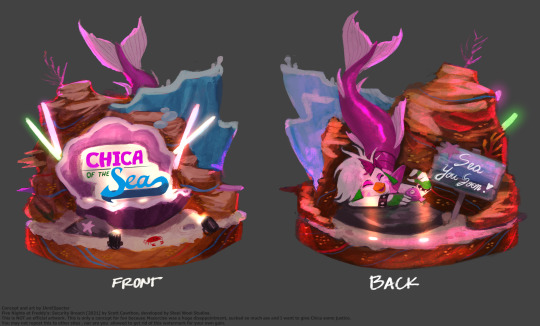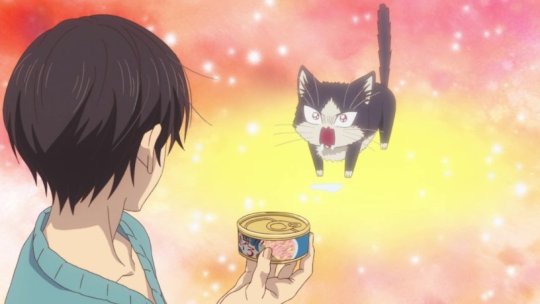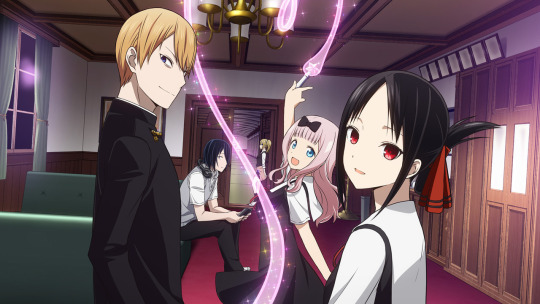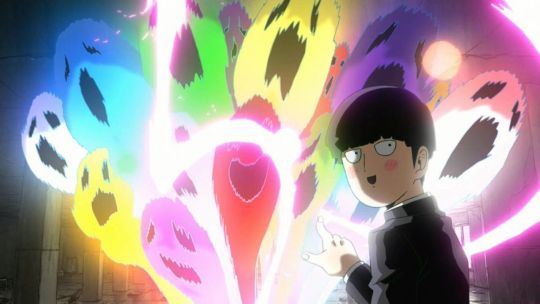#I have a short essay that goes into Chica's characterization
Photo

Chica of the Sea concept art - Entrance sign (+details on what it’s going to be)
“Chica of the Sea is an ocean based attraction themed after everyone’s favorite chicken, Glamrock Chica! With a membership pass, you can go for underwater rides, explore marine life, know facts and trivia about the wonders of the deep blue waters! You can even meet and greet the beloved mermaid chicken herself performing live with her little sea buddies! Sign up for one today to get more perks like discounts on food and other events!”
old version:

Mazercise: *exists*
Me: no <3
This is a personal project I’ve been working on, mainly because I’m very pissed at how Freddy, Roxy and Monty get their own cool attractions but Chica doesn’t. Like what the hell?
She’s one of the ogs, and she ONLY gets a small, stupid, barely-tolerable exercising studio? Like, I’d understand it if she was a minor character, but NO, EVEN MONTY GETS GATOR GOLF, AND HE USED TO BE A SIDE ATTRACTION.
Where’s the fucking logic, eh? Can’t have shit in the FNaF medias as a Chica fan, istg
Anyways, ranting aside, Chica of the Sea is going to be a HUGE ASS attraction, even bigger than Fazer Blast. So big, that it’s placed underground to prevent it from going against Monty Golf’s space (since it’ll be paralleling Fazer Blast, and placed below Kid’s Cove)
However, it is ABANDONED. And there’s a story behind it too. (thanks to my friend Nexus on twitter for helping me a bit with this)
Chica used to be a very well-loved character. On par with Freddy in terms of popularity, even. And that got her Chica of the Sea, a venue filled with all things ocean-related, with animatronic fishes that look just like the real deal, and a separate Mermaid Chica animatronic for performance purposes. However, since the event that I’d like to call “voicebox incident”, Chica’s popularity plummeted. She’s still loved by kids, but not as much as before. And in turn, also damaged the reputation of Chica of the Sea. It got to the point where keeping the attraction up and running was costing Fazbear Entertainment more money than it got in return. Abandoning it was the only solution, and so it remains below Kid’s Cove as the attraction that is stuck on limbo.
It wouldn’t make sense for Chica to go attraction-less now, would it? So, Fazbear Ent. built Dancercize, a DDR-based excercising venue that promotes junk food while dancing to the colors and beats. Not as huge as Chica of the Sea anymore, but it still works just as fine.
Dancercize, the lobby, the rides and the rooms of the abandoned attraction are still on sketch progress, I might just reblog this when I have something new to add.
For now, enjoy :]
Update (06/29/2022): Mermaid Chica decal, Diver Freddy decal
(06/30/2022): Diver Roxy decal
(07/01/2022): Diver Monty decal
#security breach#fnafsb#fnaf security breach#glamrock chica#chica of the sea#chica the chicken#concept art#NOT official though#just a silly silly little concept#for my blorbo glamrock chica#i love she#she doesn't get enough love.#and I'm here to do that for her#if glamrock chica had a singular fan it would be me#if the whole world is against glamrock chica then I am against the whole world#I love her subtle storytelling#it's so sad on what happened to her :[[[#I have a short essay that goes into Chica's characterization#she's being shoved aside by the fandom because 'haha trash eater go brrr'#PLEASEEEEE she has lore just as deep as Roxanne's give her a chance come on#I am a Chica simp yes why do you ask#🤨🤨🤨
308 notes
·
View notes
Text
Winter 2019 Anime Overview
I enjoyed every single one of the five anime I watched this season: Dororo, My Roommate is a Cat, Mob Psycho 100 II, The Promised Neverland and Kaguya-sama: Love is War.
So here are my reviews! I’ve cut back on the anime overview a lot, so these are shorter reviews than usual (though not quite as short at I’d like. someday I’ll be able to restrain myself)
Since I liked all of the shows, these aren’t in a strict worst-to-best order or anything, but the ones I found most impressive ARE nearer to the bottom. So let’s dig into last season’s anime.

My Roommate is a Cat
Premise: An antisocial writer in his early 20s adopts a cat and they both get their worlds expanded as they bond.
My take: Much like the kitty it centers on, this show is super cute, sweet and fluffy. If you’re a cat-lover and want to bask in some kitty adorableness, I encourage you to check it out. At first, I was afraid the main character Subaru’s grumpy misanthropy might be too much- I could certainly empathize with being socially isolated and avoiding people, but the way he was just rude toward others was grating. Fortunately, his character development is swift, so he quickly went from misanthrope to anxious-introverted-mess-who-awkwardly-muddles-through-social-interaction-for-the-sake-of-his-kitty, which I found EXTREMELY relatable. Subaru is coping with the loss of his parents and the fact he took them for granted while they were alive as well, so there are quite a few heart-string tugging moments.
The show’s central gimmick is that events will be told from Subaru’s point of view and then we’ll get his kitty Haru’s side of things. Yep, the cat narrates part of the show, which is how I knew I was in it for good. And Haru’s a very good cat! She’s adorable without being cloying, and at least realistic in how most of her thoughts revolve around food. Seeing her warm up to her hopeless human is just as sweet as seeing Subaru warm up to her. As a former stray cat, she has a rough backstory, so if even a restrained depiction of kitty death is too much for you, look out for that part. This show isn’t afraid to bring the feels, but it keeps things positive overall. Subaru’s friends are supportive and help a new pet owner out, and we even get a cute doggie in the mix. Overall, if you want a relaxing, nice watch with a simple, sweet story, you could do a lot worse than My Roommate is a Cat.

Dororo (Episodes 1-12)
Premise: Thanks to his father making a deal with demons, Hyakkimaru has to wander Japan and fight monsters to get his body parts back. He meets up with a young thief named Dororo.
My take: Dororo is a very loose adaptation of the 1960′s manga by Osamu Tezuka, who’s known as the godfather of manga. I was familiar with Dororo thanks to watching the live action movie for an article when I worked at epicstream (it must not have left an impression bc I remember very little) so I was curious to check this out. I ended up reading the manga too, and overall, I find it pretty impressive as an adaptation. It does a lot to make a really dated and incomplete-feeling manga more palatable and cohesive for a modern audience. Maybe I’ll do a full post expanding on those thoughts sometime, because the changes really are worth examining.
Dororo is definitely not for everyone- it’s a grim, dark show with lots of death and destruction.The story is especially not kind to women, who tend to die or be demons. The exceptions to this (such as a lady demon actually being presented as sympathetic) are mainly anime-original. Actually, while the anime eschews the original manga’s cartoon-y, jokey tone to be more serious, it actually has a much lower body count and more hopeful tone than the original, a contrast I find pretty interesting. But “more hopeful” is still not very hopeful. The story has pretty strong anti-war undertones and criticism of how authority exploits people, and there’s a lot of “these are the horrors of war” scenes and even a scene where Dororo witnesses a woman engaging in unhappy, reluctant sex work.
The premise of the story, a guy made up of mostly prosthetics on a quest to get his body parts and senses back, is also a dicey one in how it treats disability. The anime does at least make updates to the manga that lend the story a little more complexity on that front. In the manga Hyakkimaru can basically hear and speak through telepathy already and he’s portrayed as simply joyous whenever he gets a body part or sense back, despite not having a practical need for them.
The anime wisely jettisons the telepathy thing, meaning that Dororo and Hyakkimaru have some difficulty communicating, something that adds an interesting layer to the story. It means we find out about Hyakkimaru’s personality in bits and pieces alongside Dororo, going on a journey of discovery with him. And Hyakkimaru getting senses back is treated in a more realistic mixed-bag way- when he gets his hearing back, for instance, he has difficulty adjusting to it and experience serious sensory overload. It’s not really clear how he feels about a lot of things, much less the changes he’s going through.
Dororo himself is the heart of the show, really, and I find him to be really endearing and engaging as a character. His boundless energy and chattiness balance out the aloof Hyakkimaru, but he never gets overbearing or obnoxious. He’s been through a lot himself, and has a good heart. One thing worth keeping an eye out going forward is how Dororo’s gender will be handled. Dororo is afab, but in the original manga very vehemently lets everyone know he’s a boy. The anime also lets you know Dororo’s afab halfway through, but hasn’t really done much otherwise in exploring Dororo’s gender identity. I do think it’s unlikely we’ll get a handling of it as bad as the manga’s final chapters (Manga Hyakkimaru had a lot of strong, intrusive opinions about what Dororo “really” is that I think his anime version is unlikely to have based on his restrained characterization so far), but who knows.
Overall, Dororo is a nicely animated and well put-together dark action series so far. I’m not sure I would have ended up watching it if I wasn’t so interested in examining it as an adaptation, but the ride’s been pretty okay and worthwhile.

Kaguya-sama: Love is War
Premise: Miyuki Shirogane and Kaguya Shinomiya are the top students at their prestigious school, and heads of the student council. They also have a crush on each other, but both are too full of pride (and nerves) to make the first move, so they come up with schemes to trick the other into confessing. Hijinks ensue.
My take: Kaguya-sama is a wildly funny rom-com about two idiot smart kids who don’t know how to say how they feel. It’s mostly a really good time. There’s a lot of laugh-out-loud moments. The characters are a lot of fun, especially Kaguya’s friend Chica, who is pure chaos in human form and has some of the best lines in the show. The animation and direction of the show are also impressive and lavish, elevating already good gags into greatness. The finale also does that thing where it’s all suddenly surprisingly emotional and hits you really hard with all the feels, showing a little depth and true friendship among all the characters involved.
However,there are a few “yikes” moments, and the most uncomfortable one and likely the biggest deal breaker was the “Kaguya gets sick” arc, which happens roughly the last half of episode 9 and the start of 10. In it, we’re treated to tropes that are both really tired and really uncomfortable, like Kaguya being sick and her friend, for some reason???, tacitly encouraging Miyuki to take advantage of her in her weakened state. Miyuki does not, but Kaguya pulls him into bed and he falls asleep due to sleep deprivation (which is admittedly relatable) and when they wake up she believes for a time he did assault her and throws shit at him, at which point he whines about being villainized even though he “held back”.
During the next episode, Kaguya is ~secretly kind of upset he didn’t assault her because doesn’t he find her appealing~, a trope that really needs to die bc the myth girls “really want to be assaulted” is dangerous. There were a couple okay moments in the whole thing, like Miyuki deciding he should have shut the whole thing down more firmly and apologizing for an infraction, and since Miyuki didn’t cross a significant line it doesn’t ruin their relationship or make them impossible to root for or anything, but the whole thing is tired and gross and unnecessary and not all that funny. I was able to handle it because I got warned ahead of time, but it was a chore of an arc, so here’s my warning.

The Promised Neverland
Premise: Emma and her friends Ray and Norman are orphans being raised in the happy, idyllic Grace Field House. They’re never been outside it though, and there’s a wall they’re never supposed to approach. When Emma discovers the truth behind the orphanage, a tense thriller begins.
My take: I was looking forward to this one based on word of mouth, and mostly it doesn’t disappoint! The writing hooked me enough that I’ve picked up the manga to continue the story. This a rich story. It’s an intense game of cat and mouse between genius kids and unscrupulous adults where the stakes are super high. Emma and her friends pull out all the stops to outwit and escape the ones holding them captive, and the twists and turns of the narrative are delivered well. There’s also some social commentary buried under its horror to add some bite. This essay goes into how it comments on forced societal gender roles, for instance.
A thrilling plot can only shine thanks to its characters, and Emma is great protagonist. Her determination to save her family and unpredictable nature make her fun to follow. She’s a rare and refreshing example of a female shonen protag, and she sells that power of friendship stuff pretty well when she has the brains and skills to back it up. The three main kids balance each other well, with Ray’s cynicism and pragmatism contrasting Emma’s stubborn idealism, and Norman stands in the middle as someone who’s inclined to think like Ray but WANTS to be more like Emma. Despite the many conflicts and differences between them, these kids are ride and die, and the show does a good job selling their familial-friendship. A lot of the moments between them are truly heartwrenching.
The story has a big glaring flaw, though, and that’s Sister Krone and the racism regarding her. It’s not my lane, so please read Jackson P. Brown’s essay here for more info. The anime not only replicates the problem with her design but makes things arguably worse than the manga by making her personality a caricature as well. The anime portrays Krone as far more unhinged and exaggerated than her vindictive but more controlled and canny manga counterpart, even adding this weird thing where she rants at and beats up a doll. This review on episode 8 talks about the author feels the anime failed with sister Krone and his feelings on Krone as a black character well, it’s definitely worth a read.
While I have those issues with the anime’s choices, I was impressed with how the last few episodes were directed. They hit it out of the park, leaving me breathless, emotional and wanting more. Thanks to that, I’m now reading an enthralling adventure manga! This anime was definitely flawed but I can’t deny I’m interested in seeing how the second season will shake out.

Mob Psycho 100 II
Premise: Season 2 continues to tale of Mob, a ridiculously powerful psychic middle schooler. He’s in the employ of Reigen, a con-artist who has fooled many (Mob included) into thinking he has legitimate psychic abilities.
My take: Holy wow. Mob Psycho’s first season had some incredible animation, atmosphere and direction, but season two fires on all cylinders. I’m glad I caught up in time to experience the show with everyone else these last few weeks, because it was always a treat- a visual feast full of heartpumping action and lots of sincere emotion.
Mob Psycho is an animation extravaganza, with some sequences that wouldn’t feel out of place in a high budget movie, dripping with atmosphere, artistry and aplomb. But the story and characters are really solid too and it has some nice themes and messages at its core. Mob is one of the goodest good boys in all of anime and he grows a lot throughout this season. At the core of the show is the idea that no one is worthless and also no one is more “special” than anyone else, that having power doesn’t give you the right to put yourself above others, that no person is inherently superior or inferior to any other, that even if you’re born with some super talent, you still need to try to improve yourself, value other people and the things they can do that you can’t and work hard to live a balanced life. Being powerful or born with a talent doesn’t mean you have the answers or know better-so it’s all about striving to make good, compassionate choices and taking control of your own life.
There’s a lot of stories that pay lip service to themes like these without really doing much to back it up, but this show sells it with an earnestness that few manage. Mob is a quiet and gentle boy, and you genuinely believe it when he says he doesn’t like fighting or using his powers on other people, and when he breaks down in tears because for all his power he can’t figure out how to set someone on the right path this time, your heart aches. The fact that Mob actually has difficulty coming up with the right answers and will sometimes gets overwhelmed by emotion and loses control, but keeps striving for honest communication, makes his approach come off as a lot more believable than the typical shonen-hero-converting-bad-guys-with-a-confident-friendship-speech bit.
The character relationships in the show are also good stuff, particularly the relationship between Mob and Reigen, which develops a lot this season with Reigen having to grapple with how yeah, he’s been kinda terrible and dishonest, especially with this kid he cares about and there’s a point where people have enough of it. There’s a lot of nice growth there.
All together, Mob Psycho is just Good with capital G. I do wish there were more girls in it, and there is a dark skinned character who’s caricature-ish in his design (he barely shows up in this season iirc), but otherwise it’s a quality rec and breathtaking example of the truly transcendent heights anime can reach.
#winter 2019 anime#anime overview#Mob Psycho 100#my roommate is a cat#the promised neverland#dororo#kaguya sama love is war#kaguya sama: love is war#kaguya sama wa kokurasetai#my reviews
63 notes
·
View notes